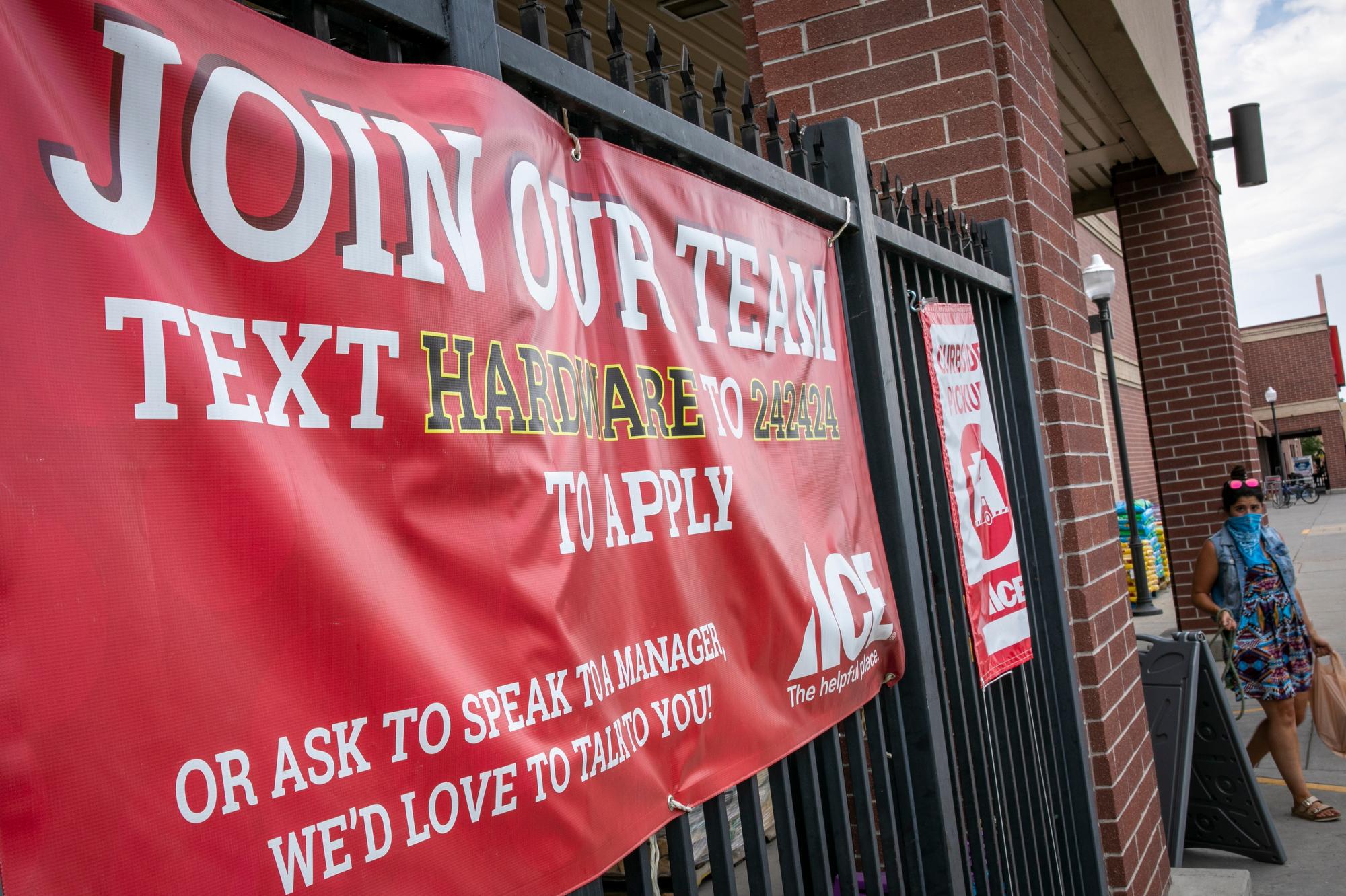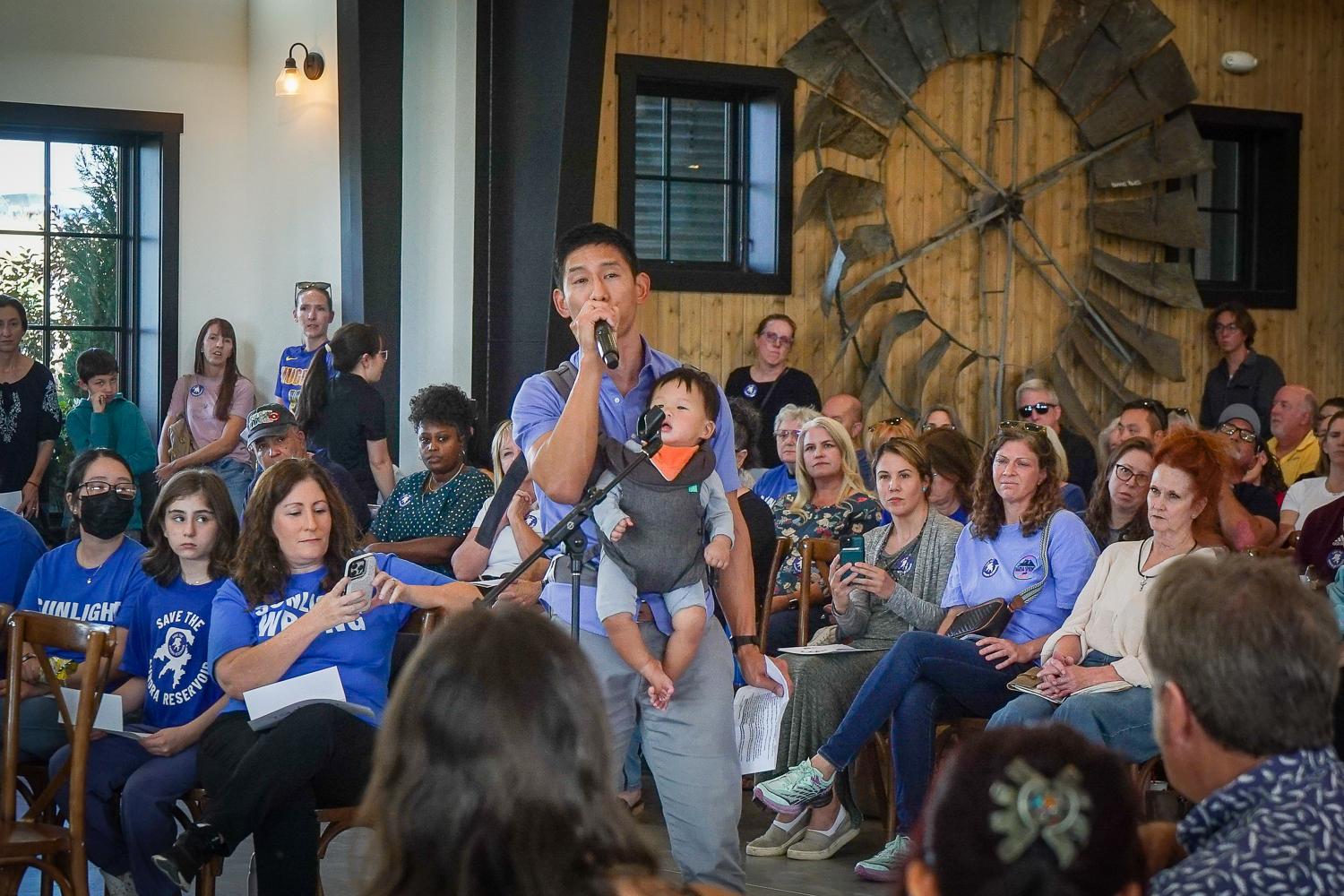
The reduction of federal unemployment benefits could punch another hole in Colorado’s state budget.
An emergency federal program had been paying $600 a week to unemployed people, but it expired late last month. With the change, state economists expect that Coloradans will reduce their purchases by 6 percent — which could knock $20 million a month from the state’s tax revenues, state budget director Lauren Larson told top state lawmakers at a meeting on Tuesday.
“We’re very concerned that we need Congress to act and act quickly,” Larson said.
President Donald Trump attempted to create a $300-a-week replacement through an executive order over the weekend, but it's unclear how and when states might launch the program.
“We’re studying them closely,” Larson said of Trump’s orders.
The biggest question is whether the state will have to come up with additional money in order to qualify for the payout. And the federal government has only dedicated enough money to pay its own portion of the enhanced benefits for five to six weeks, she said.
Meanwhile, other economic worries are looming. Surveys show that about one in five adults in Colorado “have very low confidence that they can pay even next month's rent on time,” Larson said. “One in five is a very high number for housing insecurity.”
Colorado’s unemployment rate is better than the national average, but the state has the seventh-highest rate of business closures in the country, Larson said.
The meeting also gave lawmakers a chance to question the governor’s administration about the coronavirus response. It wasn’t exactly a heated confrontation, but the hours-long meeting included sharp questions from lawmakers on both sides of the aisle.
House Speaker KC Becker, a Democrat, urged the administration to improve its relationships with local health officials, who have complained about poor communication with the state government. And she said that some agencies were concerned they weren’t receiving their full share of federal funding.
“We’re not getting the resources we really need to do everything that’s being asked of us,” Becker said of the local agencies. More broadly, she said, “there’s real frustration about communication gaps and a lag in communication.”
Polis previously attributed local health officials’ complaints to stress. Jill Hunsaker Ryan, executive director of the state health department, promised to look into the funding questions.
Becker also asked why testing turnaround times have stretched into the weeks. Administration officials said that the primary cause was private testing companies shifting resources to other states with larger outbreaks, though Colorado's resumption of elective medical procedures has also increased demand.
Meanwhile, Republican state Rep. Kim Ransom seemed skeptical about the scale of the outbreak, asking about why it deserved such a “huge response” compared to the H1N1 outbreak of 2009, which she claimed had “many, many more deaths” in the U.S.
That is incorrect, according to the Centers for Disease Control, which counted about 12,500 deaths linked to H1N1 in the 2009 outbreak. The novel coronavirus has been linked to more than 160,000 deaths in the U.S. this year. Ransom may have been mistakenly referring to the number of total cases, rather than deaths.
COVID-19 is more virulent and more novel than H1N1, meaning it spreads more quickly and scientists know less about it, state health officials said.
Chris Holbert, the Republican minority leader in the state Senate, asked how exactly Polis would decide when to call off pandemic restrictions. And he asked why some businesses were treated differently — for example, a tobacco retailer had to close but cannabis dispensaries stayed open, he said. He urged an approach that doesn’t make distinctions between types of businesses.
“Tell them what they can’t do, tell them what they have to do, give them the guidelines, the parameters. Let ‘em conduct business under a level playing field,” he said.
The administration’s goal was to prevent another shutdown, staff said. “All of our policy right now is oriented on rightsizing our level of openness with our level of readiness,” said Kacey Wulff, a COVID-19 adviser for the governor.









